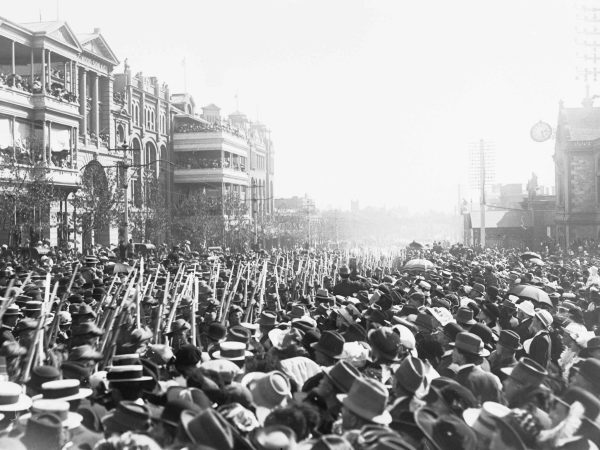
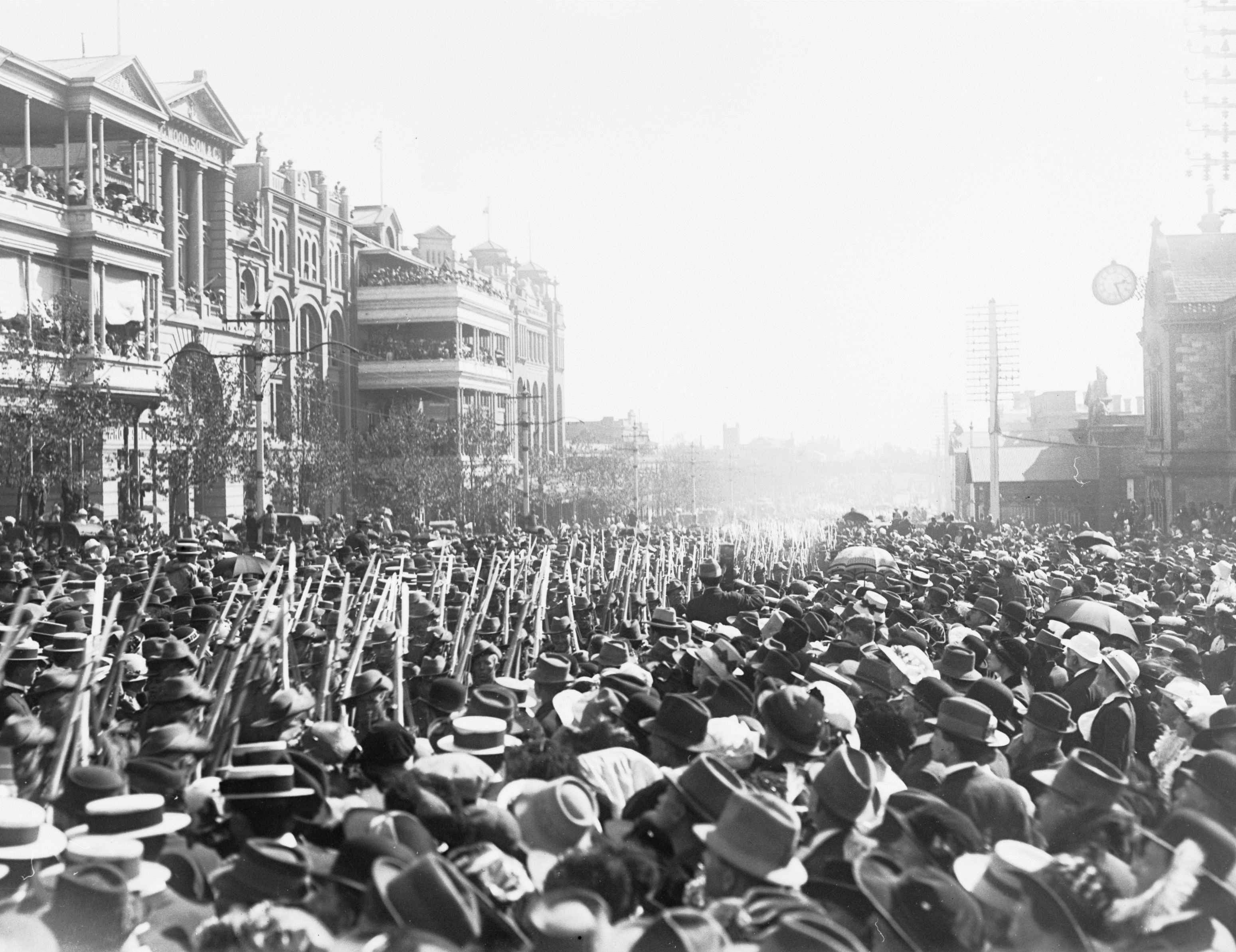
Crowds watching the South Australian troops march past, September 1914. Collection: History SA Government Photographic Collection, GN01382.
Glossary Terms
Topics
Race to the Sea, 1914 SANFL season, Federal Election - September 1914, Capture of the German colony of New Guinea, First Battle of the Marne
People
Terrell, Frederick Leopold, Cooper, Ethel, Fisher, Andrew, Mawson, Douglas, Bates, Daisy
Places
Organisations
September, 1914
This month: September was a month of high excitement and expectation, as preparations were made for the departure of the first contingent of troops.
WAR NEWS
With daily accounts of events half a world away printed in their newspapers, South Australians could follow the progress of the war – including the halt of the German advance on Paris (the Battle of the Marne) and the so-called ‘Race to the Sea‘. Much closer to home, the Australian Pacific expeditionary forces captured the German colony of New Guinea.
FEDERAL ELECTION
An election on 5 September was won decisively by the Australian Labor Party, led by Andrew Fisher. It had been called before the declaration of war and the war itself was not a point of difference: both parties promised wholehearted support to Britain. Fisher made a pledge to support the Mother country to the ‘last man and the last shilling’ in a now famous speech from the campaign in July (before war had even been declared). However in 1914 this was just one of countless statements of loyalty articulated by politicians of both sides. Later, in the bitter conscription debates of 1916 and 1917, these words were seized upon by the pro-conscriptionists.
‘THE MARCH THROUGH THE CITY’
The South Australian quota for two contingents (the 10th Infantry Battalion and the 3rd Light Horse) was filled and two additional companies were assigned to aid the Tasmanian quota (the 12th Infantry Battalion). More recruits were taken for further deployments. There was much activity at Morphettville Camp, as soldiers were drilled and outfitted. Imagine the excitement and expectation felt by these young men as they were issued new uniforms and cheered as they paraded the streets; the thrill felt by new young officers, taking command of their companies and platoons. The month was full of social events as businesses, clubs, churches and communities gathered to farewell the troops. The most grand was a combined event hosted at the Town Hall, for St Peter’s College and Prince Alfred College old scholars. The march-past of the first expeditionary force through the Adelaide CBD on 21 September drew enormous crowds. Leo Terrell stood amongst them, declaring it ‘the finest crowd I’ve ever seen’.
Sadly, there were also two deaths in the camp in late September. The soldiers, both from Broken Hill, died from pneumonia and were buried with full military honours.
PATRIOTIC ACTIVITIES
Fundraising for the war effort continued apace, with the whole community consumed. Even the Collie, Pomeranian and Pekingese Club of South Australia’s dog show made a donation to the Patriotic fund rather than award prize money. The Sunshine Girls Rowing Club held a fundraiser on the bank of the Torrens and in opening the entertainment, the Mayoress of Unley announced the object ‘worthy of womanhood of Australia’.
GERMANS IN SA
With patriotic rhetoric still on the rise, it is perhaps not surprising that it sometimes spilled over into anti-German vilification, with occasional scuffles and vigilante-style assaults. Some of these were reported in the newspapers, others – such as an attack on Adelaide University academic and popular orchestra leader, Hermann Heinricke – were not. Ethel Cooper‘s letters from Germany tell of the arrests of many of those in Germany with allegiances to Britain with Australia undertaking similar actions for those with German citizenship.
THE LOCAL SCENE
But it was not all about the war: although there were rains recorded in the state (Leo Terrell notes it rained all night one night in Pt Pirie) it was not enough to break the drought. The tough times for regional South Australia continued and many more people found themselves out of work. We can’t help but feel for Leo Terrell as his luck runs out and he is put off in the middle of the month. His dejection is clear as he records in his diary that ‘…it is utterly useless trying to secure work as there is none to be had anywhere so I have abandoned search for the same.’
Terrell returned to Adelaide the day after he was laid off, but his train arrived too late to see the premiership match – September was footy finals time in 1914, too. The match at Adelaide Oval was won decisively by Port Adelaide over North Adelaide.
It was also Show time in Adelaide and although the primary focus was agricultural produce, it was still an enormous drawcard, with thousands flocking to the show grounds in the City on a site now occupied by the University of Adelaide. Other entertainments included Douglas Mawson‘s lectures at the Town Hall and one at the Royal Society by Daisy Bates on ‘the tribal organisations of the Australian aborigines’, while the Theatre Royal presented Gilbert and Sullivan and their annual pantomime.
In short: National pride was at near fever pitch as the soldiers of the first expeditionary force were presented in September, and the energy of the whole community was harnessed. Those who weren’t enlisting were fundraising, providing comforts and cheering. The war taking place half a world away was very real at home in South Australia.


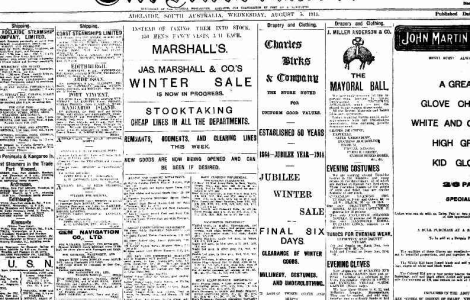
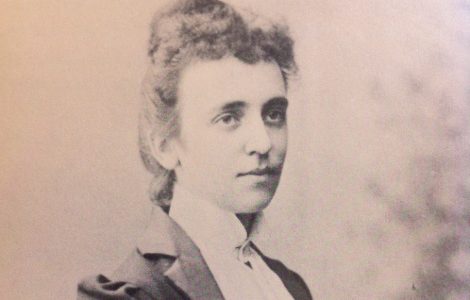

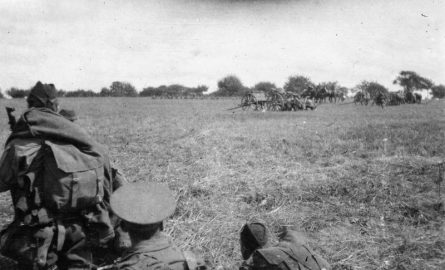

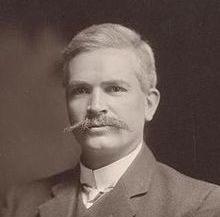
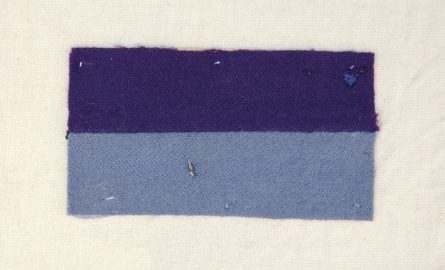
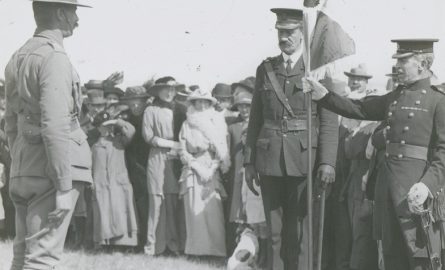
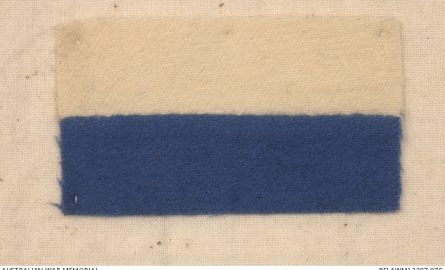
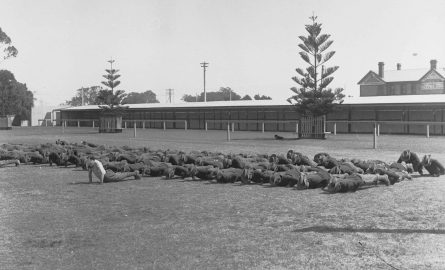
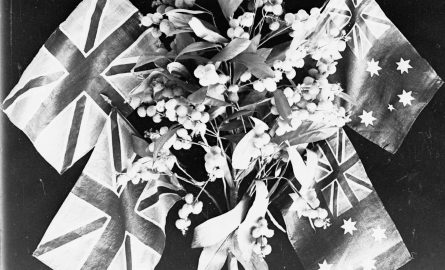
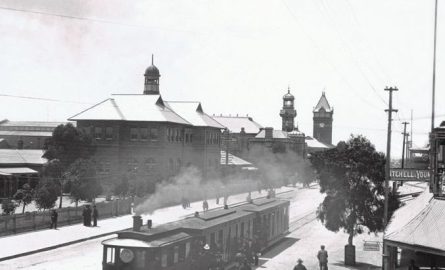
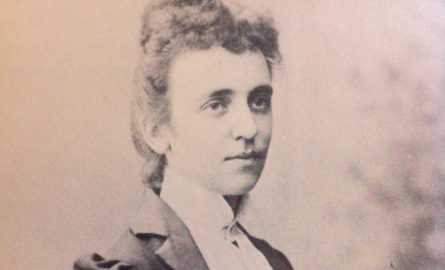
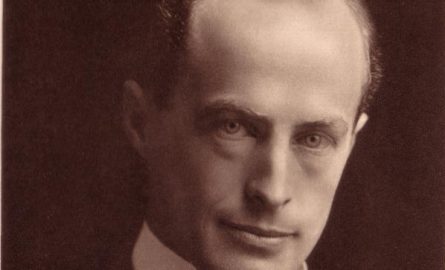
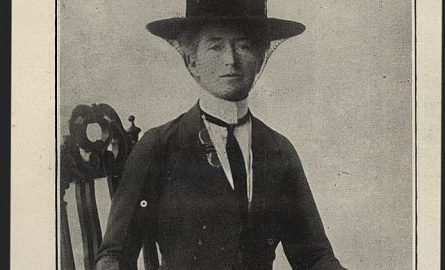
I refer to the comment about two soldiers from Broken Hill who died from pneumonia. I’m assuming that you are referring to James MARSHALL and John William POOLE. (Andrew) James MARSHALL alias John Thomas MARSHALL was my cousin, his father and my grandfather were brothers. I have tried to have his death recognised but OAWG keep asking for documentation, although I think I’ve supplied enough. The OAWG refuse to recognise any Newspaper reports. I would, therefore, be grateful if you have any information on where I might find further records. I have hospital, mortuary, cemetery, undertaker, family history, etc. Any assistance would b greatly appreciated. Kind regards, Susan Simmonds
Hi Susan,
Our account is taken from the newspaper, although these are not always reliable accounts.
I assume that you have consulted the National Archives? This is where the majority of records are held. You could also try getting in touch with the Army History Unit for information about where the camp records are held. The Army Museum at Keswick might also be able to assist.
Cheers, Allison